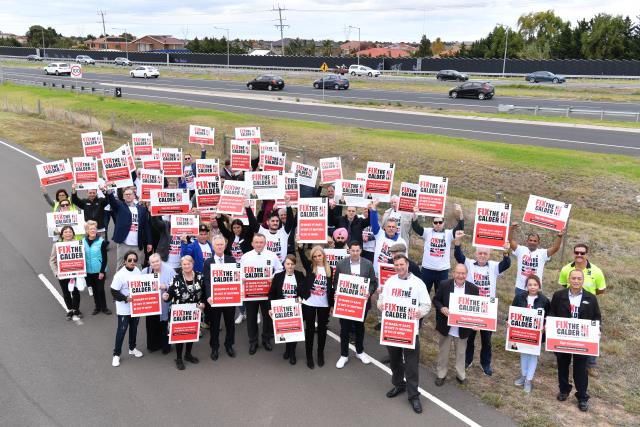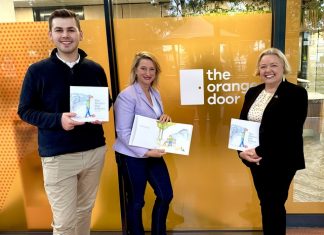Max Hatzoglou
The state government has been criticised for failing to include significant funding for Calder Freeway upgrades in this year’s state budget, despite predictions it will become Melbourne’s second most congested road by 2031.
Calder Action Group president Russell Mowatt significant population growth along the freeway corridor meant the road needed to be upgraded urgently to reduce congestion.
As reported by Star Weekly, a 2019 Infrastructure Australia report warned that the Calder Freeway will become Melbourne’s second most congested road during morning peaks, and the third most congested in the evening by 2031.
The report stated the freeway was struggling to meet demand from outer growth areas, and in 2016 was the seventh most congested road in Melbourne during morning peak periods and ninth in evening peak.
The state and federal governments announced $50 million each to upgrade the freeway between Gap Road in Sunbury and the M80 Ring Road last year, following Brimbank council’s ‘Fix the Calder’ campaign.
Planning work on the upgrade is under way, however the 2022-23 state budget papers reveal that just $3.45 million is expected to be spent by June 30, with an addition $5.90 million projected to be spent in 2022-23.
According to the budget papers, $90.65 million of the $100 million set aside for the project last year is unspent and there is no confirmed completion date for the upgrades.
Mr Mowatt said the Calder Action Group had expected more funding for the upgrades to address the “serious economic and social penalties” associated with the road’s congestion.
He said the Calder Park Drive overpass was “needed now” to improve safety at the interchange.
“However … time has passed without any clear indication of when further work will be funded, despite significant population growth in the areas that the Calder services and continuing accident rates,” he said.
A government spokesperson said the overall investment in transport infrastructure in the north and north-west would help people move around.
“Our $20 billion investment in Melbourne’s north and north-west through the Big Build is transforming the way people move around.”
“These local communities have experienced significant growth, placing pressure on the transport network, so it’s fantastic to see planning works under way on the busy Calder corridor.”








